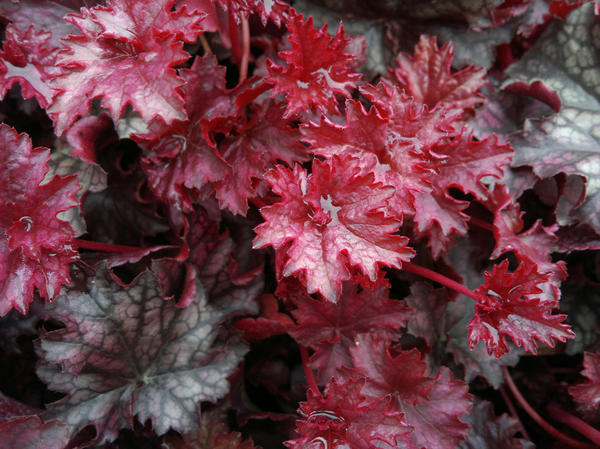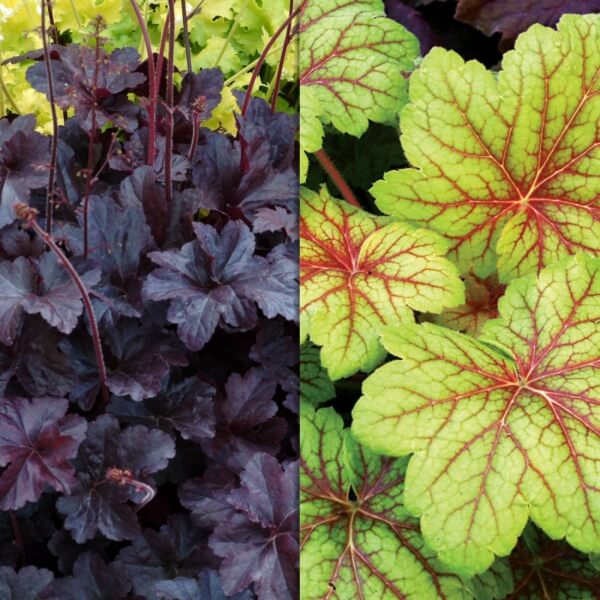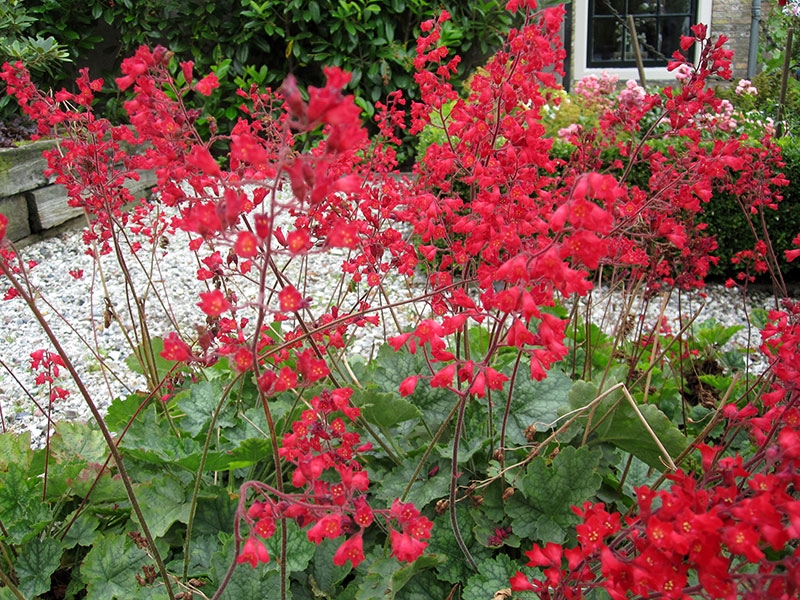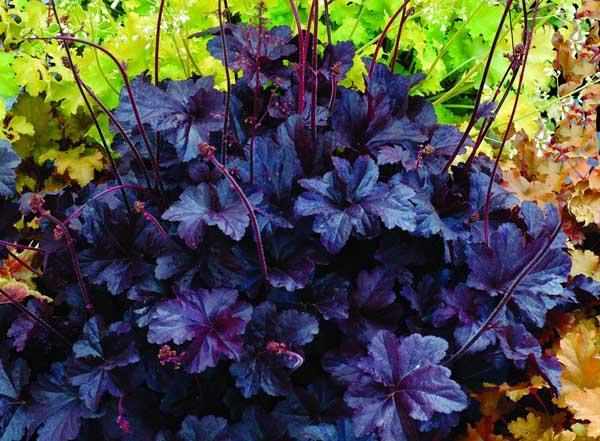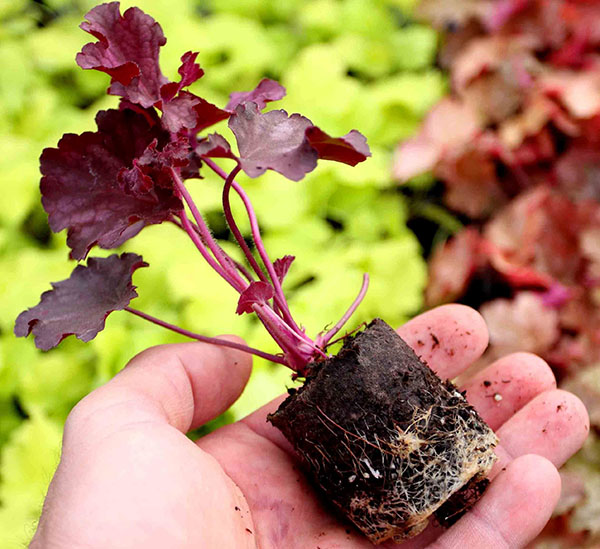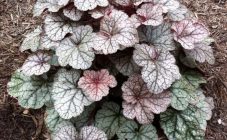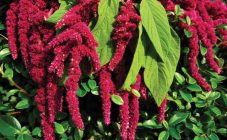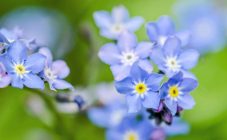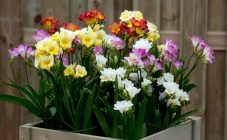Heuchera flower belongs to the Saxifrage family, to rhizome herbaceous perennials. The shrub received this name thanks to the botanist and doctor from Germany I.G. von Heicher. This flower is quite in demand for use in landscape design. Geichera is represented by a small half-meter bush with stunningly beautiful leaves of all kinds of shades.
Description and characteristics of Heuchera
This plant is frost-resistant, and therefore cultivation is possible even in Siberia. The flower is beautiful with its leaves of indescribable beauty. They are leathery-toothed with long cuttings. One bush can have a variety of colors:
- black;
- bright red;
- maroon;
- amber;
- pink;
- purple;
- yellow;
- green;
- silvery.
Sheets come with:
- streaked;
- speckled;
- spots.
Their texture is also varied:
- smooth;
- corrugated;
- curly.
Flowers can also be of different shades:
- pink;
- white;
- cream;
- red.
Homemade geykher in gardens and summer cottages bloom until autumn, and sometimes until frost, with tiny bells formed into bouquets. At the end of flowering, seed pods appear in place of the buds.
Types and varieties
There are about 70 species in this genus. They are classified into:
- mountain;
- forest.
Most of the heuchera plants grow in the highlands of Mexico and the United States. Here are some of the more well-known varieties that are suitable for landscaping:
- Blood red. Mountain variety with vibrant greens and dark red flowers. The leaves have unusual white or cream-colored specks. Peduncles up to 50 cm high. This is a frost-resistant species and is excellent for growing throughout the territory of the Russian Federation. It is this geychera that is grown in Siberia in almost every summer cottage.
- Hairy. The difference among other varieties in huge velvety leaves and pubescent peduncles with cuttings. The largest leaves are in the Bronze Wave variety. They reach 20 cm in length. These heucheras in garden design look great when paired with taller plants.
- Cylindrical. The shrub is classified as a mountain species. This is the largest variety available, so it is not difficult to distinguish it from others. It has not only spectacular and graceful leaves, but also tall peduncles with clouds of tiny flowers. During the flowering period, they seem to float above him. On the basis of this variety, breeders have developed a large number of new varieties. It is not difficult to distinguish between them, since they all have different leaf colors.
Landing
Planting in a summer cottage takes place in mid-March - early April. The shrub belongs to shade-tolerant plants and therefore it is better to plant it on the east or west side. If the flower is constantly under intense exposure to sunlight, then it needs regular watering.
Geichera in landscape design can be used in different variations:
- In the mixborder. But it can be not only floral and tree-shrub, also all kinds of options with herbs. Designers create masterpieces by combining different plants.
- They can be wonderful companions for flowers such as roses, hosts, daylilies, and irises.
- Early blooming bulbous flowers go well with any variety of Heuchera. In conditions of proper care and wintering, it retains a leaf rosette.
- Rock gardens. To do this, around the stones, you can plant thuja, juniper, moss together with heuhera.
- Rockeries.
- Cut, beautifully blooming varieties with large flowers can be great for decorative purposes.
- Heuchera flowers can serve as a decorative border throughout the year, decorating any landscape.
- Suitable for container decoration.
- Geuchera in garden design looks spectacular around water bodies.
Geykhera in a flowerbed is a flower of indescribable beauty. There is not a single plant on the planet that, during one vegetative period, could change its shade several times, have leaves of various shapes, structures and textures on one bush. Having planted a flower on your site, you can admire the flowering until the very frost.
